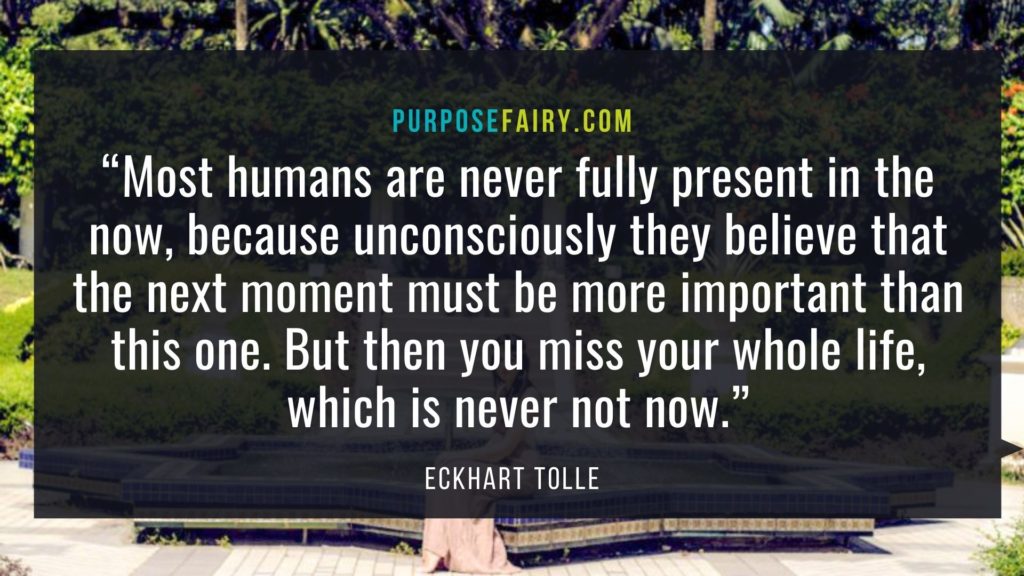
“For love, we will climb mountains, cross seas, traverse desert sands, and endure untold hardships. Without love, mountains become unclimbable, seas uncrossable, deserts unbearable, and hardships our lot in life.”~ The Five Love Languages by Gary Chapman
The Five Love Languages
It’s no secret that in order to have a long lasting, healthy and deeply connected relationship, you can’t just sit around and do nothing. A happy and loving relationship requires both partners to invest themselves in it, in knowing each other, knowing themselves, and what they truly need. And if by any chance you have no idea where to start, Gary Chapman‘s The Five Love Languages offers you a clear roadmap to that.
Prepare yourself for your relationship to be forever transform and turn into a love that definitely withstands the test of time.
The Five Love Languages: 50 Secrets to a Love that Never Dies
Words of Affirmations
“Our most basic emotional need is not to fall in love but to be genuinely loved by another, to know a love that grows out of reason and choice, not instinct.” ~ The Five Love Languages
“Giving verbal compliments is only one way to express words of affirmation to your spouse. Another dialect is encouraging words. The word encourage means “to inspire courage.” All of us have areas in which we feel insecure.
We lack courage, and that lack of courage often hinders us from accomplishing the positive things that we would like to do. The latent potential within your spouse in his or her areas of insecurity may await your encouraging words.”~ The Five Love Languages
“The object of love is not getting something you want but doing something for the well-being of the one you love.”~ The Five Love Languages
“The manner in which we speak is exceedingly important. An ancient sage once said, “A soft answer turns away anger.” When your spouse is angry and upset and lashing out with words of heat, if you choose to be loving, you will not reciprocate with additional heat but with a soft voice.”~ The Five Love Languages

“Compliment your spouse in the presence of his parents or friends. You will get double credit”
“People tend to criticize their spouse most loudly in the area where they themselves have the deepest emotional need.”~ The Five Love Languages
“Love makes requests, not demands. When I demand things from my spouse, I become a parent and she the child.”~ The Five Love Languages
“Encouragement requires empathy and seeing the world from your spouse’s perspective. We must first learn what is important to our spouse. Only then can we give encouragement.”~ The Five Love Languages
“Most of us have more potential than we will ever develop. What holds us back is often a lack of courage. A loving spouse can supply that all-important catalyst.”~ The Five Love Languages
“The manner in which we speak is exceedingly important. An ancient sage once said, ‘A soft answer turns away anger.'”~ The Five Love Languages
“Love doesn’t keep a score of wrongs. Love doesn’t bring up past failures. None of us is perfect. In marriage we do not always do the right thing. We have sometimes done and said hurtful things to our spouses. We cannot erase the past. We can only confess it and agree that it was wrong. We can ask for forgiveness and try to act differently in the future.”~ The Five Love Languages
“Love makes requests, not demands.”~ The Five Love Languages
Quality Time
“Like words of affirmation, the language of quality time also has many dialects. One of the most common dialects is that of quality conversation. By quality conversation, I mean sympathetic dialogue where two individuals are sharing their experiences, thoughts, feelings, and desires in a friendly, uninterrupted context.”~ The Five Love Languages
“It isn’t enough to just be in the same room with someone. A key ingredient in giving your spouse quality time is giving them focused attention, especially in this era of many distractions.”
“One of the by-products of quality activities is that they provide a memory bank from which to draw in the years ahead.”~ The Five Love Languages
“Time is a precious commodity. We all have multiple demands on our time, yet each of us has the exact same hours in a day. We can make the most of those hours by committing some of them to our spouse. If your mate’s primary love language is quality time, she simply wants you, being with her, spending time.”~ The Five Love Languages
“Some husbands and wives think they are spending time together when, in reality, they are only living in close proximity.”~ The Five Love Languages
“When your spouse’s emotional love tank is full and he feels secure in your love, the whole world looks bright and your spouse will move out to reach his highest potential in life. But when the love tank is empty and he feels used but not loved, the whole world looks dark and he will likely never reach his potential for good in the world.”~ The Five Love Languages
“Quality conversation is quite different from the love language words of affirmation. Affirming words focus on what we are saying, whereas quality conversation focuses fully as much on what we are hearing. If I am sharing my love for you by means of quality time and we are going to spend that time in conversation, it will be with a genuine desire to understand your thoughts, feelings and desires.” ~ The Five Love Languages
“Recent research has indicated that the average individual listens for only seventeen seconds before interrupting. ” ~ The Five Love Languages
“Physical presence in the time of crisis is the most powerful gift you can give if your spouse’s primary love language is receiving gifts. Your body becomes the symbol of your love.” ~ The Five Love Languages
“It takes time and the conscious choice to listen.” ~ The Five Love Languages
Receiving Gifts
“A gift is something you can hold in your hand and say, “Look, he was thinking of me,” or “She remembered me.” You must be thinking of someone to give him a gift. The gift itself is a symbol of that thought.” ~ The Five Love Languages
“Almost everything ever written on the subject of love indicates that at the heart of love is the spirit of giving.” ~ The Five Love Languages

“There is an intangible gift that sometimes speaks more loudly than a gift that can be held in one’s hand. I call it the gift of self or the gift of presence. Being there when your spouse needs you speaks loudly to the on whose primary love language is receiving gifts.” ~ The Five Love Languages
“A gift is something you can hold in your hand and say, “Look, he was thinking of me,” or, “She remembered me.” You must be thinking of someone to give him a gift. The gift itself is a symbol of that thought. It doesn’t matter whether it costs money.” ~ The Five Love Languages
“It is not the thought left in your head that counts; it is the gift that came out of the thought that communicates emotional love.” ~ The Five Love Languages
“We fail to reckon with the reality of human nature. By nature, we are egocentric. Our world revolves around us. None of us is totally altruistic.” ~ The Five Love Languages
“Material things are no replacement for human, emotional love.” ~ The Five Love Languages
“Physical presence in the time of crisis is the most powerful gift you can give if your spouse’s primary love language is receiving gifts.”
Acts of Service
“What we do for each other before marriage is no indication of what we will do after marriage.” ~ The Five Love Languages
“No one likes to be forced to do anything. In fact, love is always freely given. Love cannot be demanded. We can request things of each other, but we must never demand anything. Requests give direction to love, but demands stop the flow of love.” ~ The Five Love Languages
“Learning the love language of acts of service will require some of us to reexamine our stereotypes of the roles of husbands and wives.” ~ The Five Love Languages
“Love says, ‘I love you too much to let you treat me this way. It is not good for you or me.'” ~ The Five Love Languages
“Allowing oneself to be used or manipulated by another is not an act of love. It is, in fact, an act of treason.” ~ The Five Love Languages
“By acts of service, I mean doing things you know your spouse would like you to do. You seek to please her by serving her, to express your love for her by doing things for her.” ~ The Five Love Languages
“Love is a choice and cannot be coerced.” ~ The Five Love Languages
“When people serve others because they are forced to do so, freedom to truly serve is lost. Slavery hardens the heart, creates anger, bitterness and resentment. On the other hand, true love often finds its expression in acts of serve. It is service freely given, not out of fear but out of choice. It comes out of personal discovery that “it is more blessed to give than to receive” ~ The Five Love Languages
“If acts of service do not come naturally for you, it is still a love language worth acquiring. It is a way of expressing a sense of responsibility for the well-being of others. Albert Schweitzer said repeatedly ” As long as there is a man in the world who is hungry, sick, lonely or living in fear, he is my responsibility.”
Helping others is universally accepted as an expression of love.” ~ The Five Love Languages
“It is a love that unites reason and emotion.” ~ The Five Love Languages
Physical Touch
“At the heart of mankind’s existence is the desire to be intimate and to be loved by another. Marriage is designed to meet that need for intimacy and love.”
“Physical touch can make or break a relationship. It can communicate hate or love. To the person whose primary love language is physical touch, the message will be far louder than the words “I hate you” or “I love you.” ~ The Five Love Languages
“Don’t make the mistake of believing that the touch that brings pleasure to you will also bring pleasure to her.” ~ The Five Love Languages
“Clearly our bodies are for touching, but not for abuse.” ~ The Five Love Languages
“Physical touch is also a powerful vehicle for communicating marital love. Holding hands, kissing, embracing, and sexual intercourse are all ways of communicating emotional love to one’s spouse. For some individuals, physical touch is their primary love language. Without it, they feel unloved. With it, their emotional tank is filled, and they feel secure in the love of their spouse.” ~ The Five Love Languages
“Your picture of a perfect mate should give you some idea of your primary love language.” ~ The Five Love Languages

“We are creatures of choice. That means that we have the capacity to make poor choices, which all of us have done. We have spoken critical words, and we have done hurtful things. We are not proud of those choices, although they may have seemed justified at the moment. Poor choices in the past don’t mean that we must make them in the future.” ~ The Five Love Languages
“Almost never do two people fall in love on the same day, and almost never do they fall out of love on the same day.” ~ The Five Love Languages
“Once you discover that physical touch is the primary love language of your spouse, you are limited only by your imagination on ways to express love.” ~ The Five Love Languages
“Love doesn’t erase the past, but it makes the future different. When we choose active expressions of love in the primary love language of our spouse, we create an emotional climate where we can deal with our past conflicts and failures.” ~ The Five Love Languages
Bonus:
“I am amazed by how many individuals mess up every new day with yesterday. They insist on bringing into today the failures of yesterday, and in so doing, they pollute a potentially wonderful present.”
“We cannot rely on our native tongue if our spouse does not understand it. If we want them to feel the love we are trying to communicate, we must express it in his or her primary love language.”
“Forgiveness is not a feeling; it is a commitment. It is a choice to show mercy, not to hold the offense up against the offender. Forgiveness is an expression of love.”
“It is a love that unites reason and emotion. It involves an act of the will and requires discipline, and it recognizes the need for personal growth. Our most basic emotional need is not to fall in love but to be genuinely loved by another, to know a love that grows out of reason and choice, not instinct. I need to be loved by someone who chooses to love me, who sees in me something worth loving.”
“The choice to do or say something for the other person’s benefit, that would help make them a better person, something that would enrich their lives and make their lives more meaningful for them.”
“Forgiveness is not a feeling; it is a commitment. It is a choice to show mercy, not to hold the offense up against the offender. Forgiveness is an expression of love.
“I love you. I care about you, and I choose to forgive you. Even though my feelings of hurt may linger, I will not allow what has happened to come between us. I hope that we can learn from this experience. You are not a failure because you have failed. You are my spouse, and together we will go on from here.” Those are the words of affirmation expressed in the dialect of kind words.”
“If we are to develop an intimate relationship, we need to know each other’s desires. If we wish to love each other, we need to know what the other person wants.”
“We believe that she is committed to meeting our needs, that he loves us as much as we love him and would never do anything to hurt us. That thinking is always fanciful. Not that we are insincere in what we think and feel, but we are unrealistic. We fail to reckon with the reality of human nature. By nature, we are egocentric.”
“Some couples believe that the end of the “in-love” experience means they have only two options: resign themselves to a life of misery with their spouse; or jump ship and try again. Our generation has opted for the latter.”
“Inside every child is an ‘emotional tank’ waiting to be filled with love. When a child really feels loved, he will develop normally, but when the love tank is empty, the child will misbehave. Much of the misbehavior of children is motivated by the cravings of an empty ‘love tank.”
Comments
E. F.
read more
